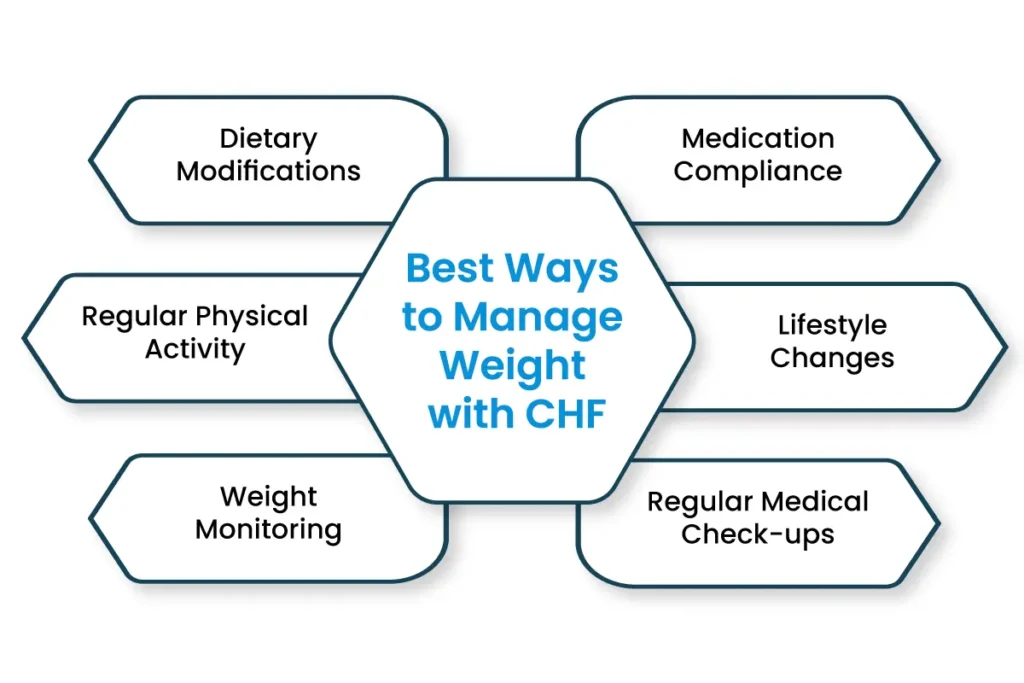

Each year, nearly 500,000 individuals in the United States are diagnosed with congestive heart failure, a condition that significantly impacts the overall quality of life and longevity. Presently, over 6.5 million Americans above the age of 20 live with this challenging condition.
Among the myriad of factors that influence heart failure, weight management plays a crucial role. This blog explores the connection between weight loss and congestive heart failure, offering insights into how maintaining a healthy weight can enhance heart function and improve patient outcomes.
Congestive heart failure (CHF) is a chronic progressive condition that affects the pumping power of your heart muscles. While often referred to simply as “heart failure,” CHF specifically involves the stage in which fluid builds up around the heart and causes it to pump inefficiently.
Severity of Heart Failure: The more severe the heart failure, the more likely it is that the body will retain fluid, leading to more significant weight gain.
Management of Heart Failure: Proper management of heart failure with medications that include diuretics can help control fluid retention, affecting the amount of weight gained.
Dietary Habits: Sodium intake significantly impacts fluid retention, so diets high in salt can lead to greater weight gain due to water retention.
Mild to Moderate Fluid Retention: In the early or less severe stages of CHF, weight gain might be slight, ranging from 2 to 5 pounds due to fluid accumulation.
Severe Fluid Retention: In more severe cases, it’s possible to gain 10 pounds or more in a very short period, such as over a week or even a few days.
Stage 4 congestive heart failure, also known as end-stage heart failure, is the most severe phase of the condition. At this stage, the heart has become significantly weakened and is unable to pump blood efficiently throughout the body, despite full treatment. This results in severe symptoms and limitations. Here’s what stage 4 congestive heart failure typically looks like:
Weight loss in individuals with congestive heart failure (CHF) can be both a symptom and a treatment goal, depending on the patient’s overall condition and the stage of heart failure. Here’s a closer look at the dual role of weight loss in CHF:
Managing weight effectively is crucial for individuals with congestive heart failure (CHF), as it can help alleviate symptoms, reduce the burden on the heart, and potentially improve the overall prognosis. Here are some of the best strategies for weight management in CHF:
Managing weight effectively is crucial for individuals with congestive heart failure (CHF), as it can help alleviate symptoms, reduce the burden on the heart, and potentially improve the overall prognosis. Here are some of the best strategies for weight management in CHF:

Talk to an Expert Now